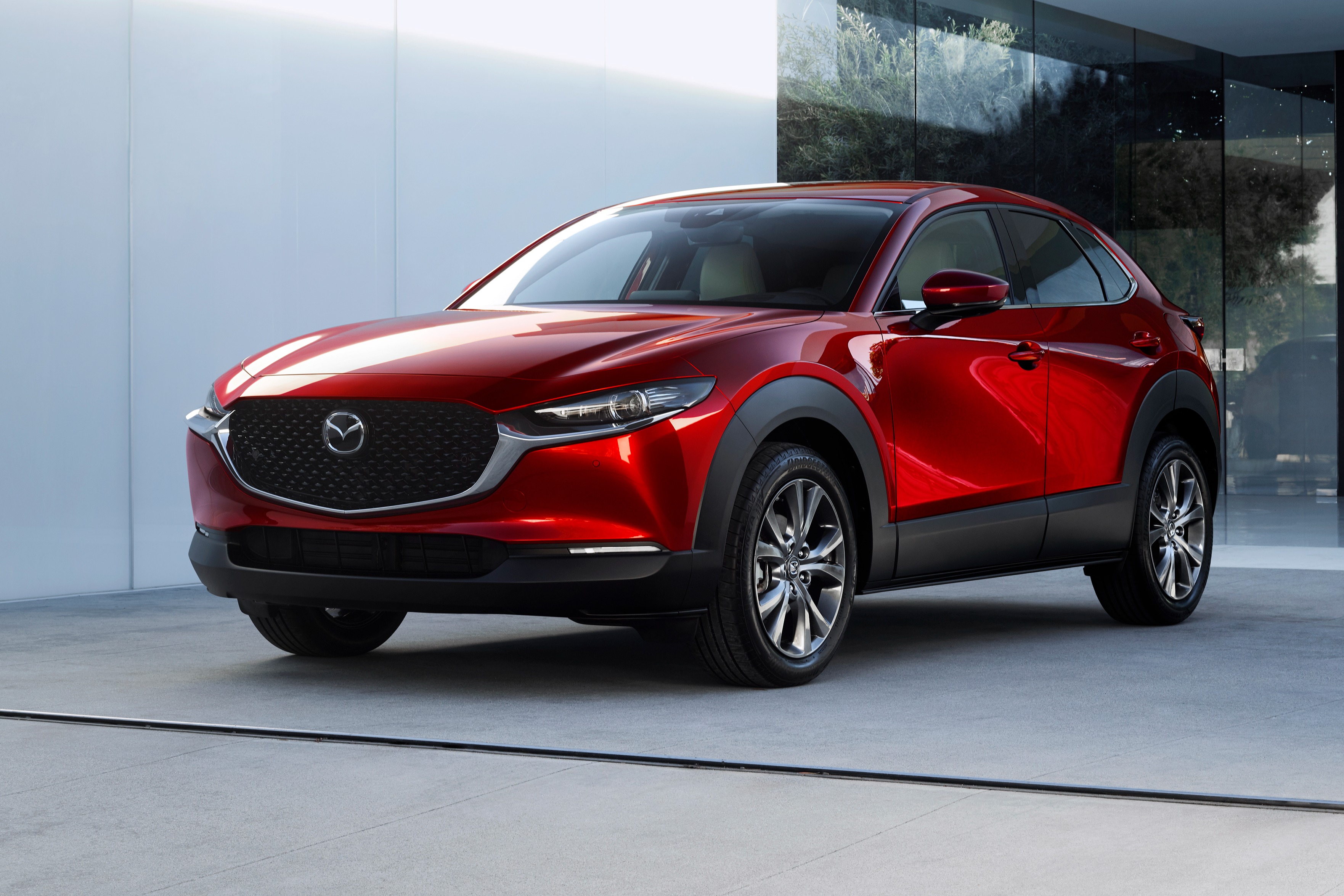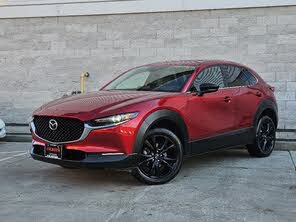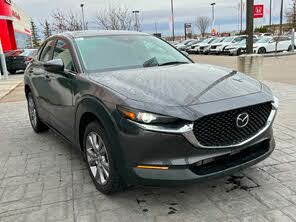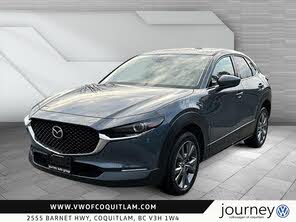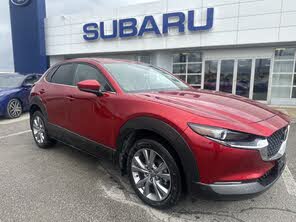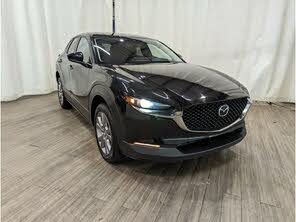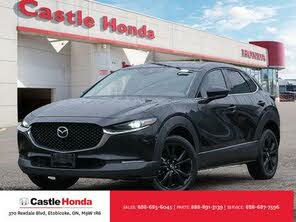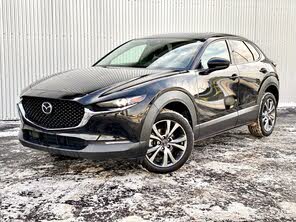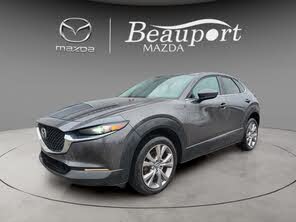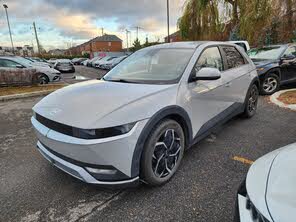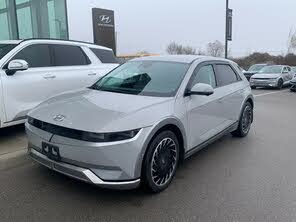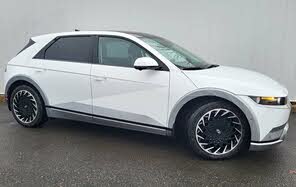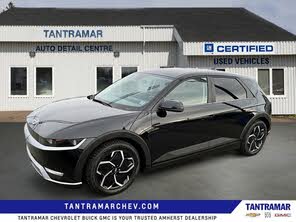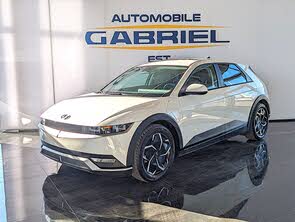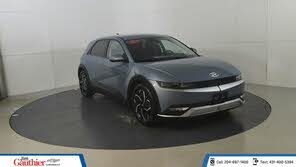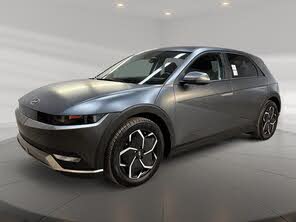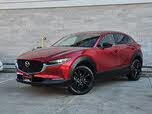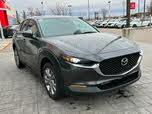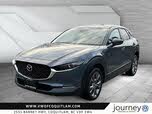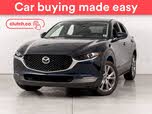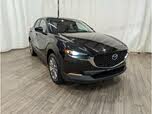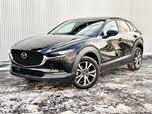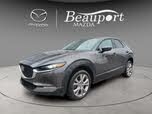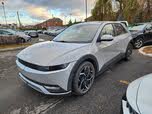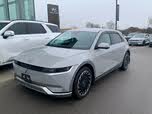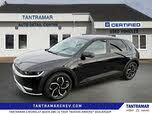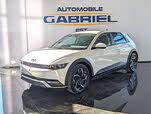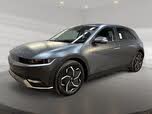Mazda CX-30 vs Hyundai Ioniq 5
Overview | |
Years produced2020-Present | Years produced2022-Present |
MSRP$24,995 | MSRP$39,700 |
Average price$27,705 | Average price$39,461 |
Listings1204 | Listings761 |
Ratings & Reviews | |
User Reviews | User Reviews |
Expert reviews7.7 out of 10 | Expert reviews9.0 out of 10 |
Pros
| |
Reviews SummaryIntroduced in 2020 and continually updated and upgraded since then, the CX-30 is Mazda’s smallest crossover SUV. This year, the 2024 CX-30 comes in new a new Suna trim level, adds USB-C charging ports, and is available with a larger infotainment screen featuring wireless Apple CarPlay and Android Auto. All CX-30s have standard all-wheel drive (AWD), and you can upgrade to a turbocharged engine for more power and performance. Verdict: Sticking to its corporate traditions with the 2024 CX-30, Mazda delivers style, refinement, safety, and rewarding driving dynamics in the small crossover SUV segment. As expected, rear-seat room and cargo space are tight, but otherwise, the Mazda CX-30 is a delightful little SUV. | |
Reviews SummaryThe Hyundai Ioniq 5 is the automaker’s debut electric vehicle from its new sub-brand that focuses solely on battery electric-powered and eco-friendly mobility. The all-new Ioniq 5 is chock full of battery technology, smart car connectivity, advanced safety, and unique design all at a price point that appeals to the masses. | |
No video found | |
Popular Features & Specs | |
Engine2.5L 191 hp I4 | Engine168 hp Electric |
Drive TrainAWD | Drive TrainRWD |
Seating Capacity5 | Seating Capacity5 |
Horsepower191 hp @ 6000 rpm | Horsepower |
EV Battery Capacity | EV Battery Capacity58 kWh |
MPG City26 | MPG City127 |
MPG Highway33 | MPG Highway94 |
Engine | |
Engine Name2.5L 191 hp I4 | Engine Name168 hp Electric |
Torque186 lb-ft @ 4000 rpm | Torque |
Horsepower191 hp @ 6000 rpm | Horsepower |
DrivetrainAWD | DrivetrainRWD |
Fuel Economy | |
EV Battery Capacity | EV Battery Capacity58 kWh |
MPG City26 | MPG City127 |
MPG Highway33 | MPG Highway94 |
Interior | |
Seating Capacity5 | Seating Capacity5 |
Key Features | |
Navigation System | Navigation SystemStandard |
Safety | |
Front Crash Overall5 | Front Crash Overall4 |
Side Crash Overall5 | Side Crash Overall5 |
Dimensions & Capacity | |
Cargo Space20.2 cu ft | Cargo Space27.2 cu ft |
Curb Weight3419 lbs | Curb Weight4200 lbs |
Height61.7 in | Height63.0 in |
Length173.0 in | Length182.5 in |
Width70.7 in | Width74.4 in |
Wheelbase104.4 in | Wheelbase118.1 in |
Maximum Payload962 lbs | Maximum Payload1157 lbs |
Number of doors4 | Number of doors4 |
Overview | ||
Years produced | 2020-Present | 2022-Present |
MSRP | $24,995 | $39,700 |
Average price | $27,705 | $39,461 |
Listings | ||
Ratings & Reviews | ||
User reviews | ||
Expert reviews | 7.7 out of 10Read full review | 9.0 out of 10Read full review |
Pros & cons | Pros
| |
Summary | Introduced in 2020 and continually updated and upgraded since then, the CX-30 is Mazda’s smallest crossover SUV. This year, the 2024 CX-30 comes in new a new Suna trim level, adds USB-C charging ports, and is available with a larger infotainment screen featuring wireless Apple CarPlay and Android Auto. All CX-30s have standard all-wheel drive (AWD), and you can upgrade to a turbocharged engine for more power and performance. Verdict: Sticking to its corporate traditions with the 2024 CX-30, Mazda delivers style, refinement, safety, and rewarding driving dynamics in the small crossover SUV segment. As expected, rear-seat room and cargo space are tight, but otherwise, the Mazda CX-30 is a delightful little SUV. | The Hyundai Ioniq 5 is the automaker’s debut electric vehicle from its new sub-brand that focuses solely on battery electric-powered and eco-friendly mobility. The all-new Ioniq 5 is chock full of battery technology, smart car connectivity, advanced safety, and unique design all at a price point that appeals to the masses. |
Video | No video found | |
Popular Features & Specs | ||
Engine | 2.5L 191 hp I4 | 168 hp Electric |
Drive Train | AWD | RWD |
Seating Capacity | 5 | 5 |
Horsepower | 191 hp @ 6000 rpm | |
EV Battery Capacity | 58 kWh | |
MPG City | 26 | 127 |
MPG Highway | 33 | 94 |
Engine | ||
Engine Name | 2.5L 191 hp I4 | 168 hp Electric |
Torque | 186 lb-ft @ 4000 rpm | |
Horsepower | 191 hp @ 6000 rpm | |
Drivetrain | AWD | RWD |
Fuel Economy | ||
EV Battery Capacity | 58 kWh | |
MPG City | 26 | 127 |
MPG Highway | 33 | 94 |
Interior | ||
Seating Capacity | 5 | 5 |
Key Features | ||
Navigation System | Standard | |
Safety | ||
Front Crash Overall | 5 | 4 |
Side Crash Overall | 5 | 5 |
Dimensions & Capacity | ||
Cargo Space | 20.2 cu ft | 27.2 cu ft |
Curb Weight | 3419 lbs | 4200 lbs |
Height | 61.7 in | 63.0 in |
Length | 173.0 in | 182.5 in |
Width | 70.7 in | 74.4 in |
Wheelbase | 104.4 in | 118.1 in |
Maximum Payload | 962 lbs | 1157 lbs |
Number of doors | 4 | 4 |

By: CarGurus + AI
At CarGurus, our team of experienced automotive writers remain at the heart of our content operation, conducting hands-on car tests and writing insightful guides that are backed by years of industry experience. To complement this, we are harnessing AI to make our content offering more diverse and more helpful to shoppers than ever. To achieve this, our AI systems are based exclusively on CarGurus content, ratings and data, so that what we produce is both unique to CarGurus, and uniquely helpful to car shoppers.
